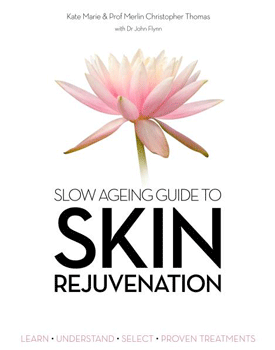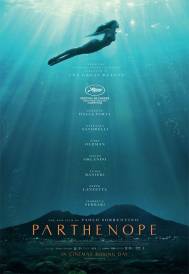Slow Ageing Guide to Skin Rejuvenation

Slow Ageing Guide to Skin Rejuvenation
A new book empowers women to look beyond the culture that tells them they must look young to retain their value.
If you're ready to cut through the contradictions and find skin rejuvenation procedures that work, Kate Marie at Slow Ageing is here to help. Whilst it's not possible to turn back the clock or stop ageing, the science of skin has developed treatments that are evidence-based and improve skin health.
In her new book, the Slow Ageing Guide to Skin Rejuvenation Kate Marie, along with co-authors Professor Merlin Thomas and Dr John Flynn bring together years of experience and scientific research in diet, nutrition, and overall well-being to show women that cosmetic medicine is about more than just feeding into a culture obsessed with perpetual youth.
The book presents a best practice approach, showing readers how to achieve greater skin health by eating well and exercising, as well as skin rejuvenation technologies that best support ageing skin. Starting with what happens to the skin as it ages, the book also covers the environmental impact on skin ageing, diet and lifestyle, hormones and skin care through to more intensive treatment options that rejuvenate the skin and restore its healthy function. Every treatment is connected to the relevant science that demonstrates its value and lasting effects on your skin.
The Slow Ageing movement was pioneered by former Nurse Kate Marie, author of the best-selling book Fast Living, Slow Ageing, who became interested in improving her skin health when she realised her skin was a reflection of her internal health – for better or worse. Kate wasn't ready to just let her skin age, and began to research how to promote her inner health, resulting in fresh improved skin.
The second book in the Slow Ageing series, the Slow Ageing Guide to Skin Rejuvenation empowers readers with the knowledge to help improve skin health and live with greater wellness. Now available at all major book stores and online at www.slowaging.org
Kate Marie is the driving force behind the -Slow Ageing' collaboration. Drawing on her frustrations with established medical practice and the generic -anti-ageing' industry, her work aims to provide transformational health information which gives all men and women the realistic means to control their own ageing and love getting older.
Professor Merlin Christopher Thomas MD, PhD is a clinician scientist whose research focuses on the role of diabetes, glycation and oxidative stress in accelerating the changes of ageing, and finding a practical means for their control. Diabetes Australia, the Australian NHMRC, Kidney Health Australia and the National Heart Foundation also support the work of Dr Thomas.
Slow Ageing Guide to Skin Rejuvenation
Health Inform
Authors: Kate Marie and Professor Merlin Christopher Thomas MD, PhD
ISBN: 9780980633917
RRP: $34.99
Interview with Kate Marie
Question: Why did you write Slow Ageing Guide to Skin Rejuvenation?
Kate Marie: I found navigating decision making challenging as there is so much hype and a lack of education even amongst health practitioners. An example is with laser – these are often very expensive so if a practitioner has a lot of money invested then they only sell you that solution and not necessarily what is right for your personal situation. Same with skin products, not all ingredients are created equal and some arguably won't work even with the very expensive Question: practitioner brands.
What will the reader take from Slow Ageing Guide to Skin Rejuvenation?
Kate Marie: They'll be very clear on what are truthful claims and what are not. We simplify complex topics such as how the skin works and then how various treatments can address skin ageing. We also compare various approaches to addressing some of the concerns associated with ageing skin.
Question: What is the best practice approach to skin health?
Kate Marie: Ageing is a multi-factorial process and to address this we need to look at a mix of modalities when it comes to addressing some of the concerns associated with skin ageing. In a nutshell: use sunscreen, appropriate doses of active ingredients in skincare, slow ageing through dietary measures such as removal of sugar, fried foods and eating lots of colourful veges. Also get good sleep and try and reduce stress.
Question: How does what we eat, show on our skin?
Kate Marie: In particular it is the bad foods that show in our skin. Sugar and fried foods in particular cause the formation of Advanced Glycation End products (AGEs) and these cause modifications of our tissues and accelerate skin ageing. Also by eating processed foods and not enough quality wholefoods, we end up with inflammatory processes also wreaking havoc and this shows up in our skin causing accelerated ageing.
Question: How did you discover this method of skin rejuvenation?
Kate Marie: I've used a bit of science and a bit of trial and error (and ended up with errors as well!). My mainstay interventions are: hormone modulation, reduce sugar and alcohol, use sunscreen always, use laser treatments to resurface my face, use good skincare containing active ingredients that are evidence based (have been trialled in some way), try and eat clean food that is largely plant based with fish for protein, anti-wrinkle injections and fillers and voumisers. Last -trial' intervention was using my fat to grow stem cells and then had the stem cells injected into my face.
Slow Ageing Guide to Skin Rejuvenation
Health Inform
Authors: Kate Marie and Professor Merlin Christopher Thomas MD, PhD
ISBN: 9780980633917
RRP: $34.99
Interview by Brooke Hunter
MORE



